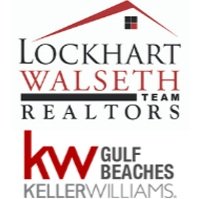How Do I 1031 Exchange Into an Investment Property in Pinellas County?
If you’re thinking about selling one investment property and buying another—without getting slammed by capital gains taxes—you’ve probably heard of the 1031 Exchange. It’s one of the smartest tools real estate investors can use to build long-term wealth.
But how does it actually work? And what do you need to know if you’re planning to 1031 exchange into a property in Pinellas County, whether it’s in St. Pete Beach, Gulfport, Pass-a-Grille, or anywhere in the Tampa Bay area?
Let’s break it down step by step.
💼 What Is a 1031 Exchange?
A 1031 Exchange, named after Section 1031 of the IRS tax code, allows you to defer capital gains taxes when you sell one investment property and reinvest the proceeds into another “like-kind” investment.
This means you can:
Sell a rental property, Airbnb, or commercial asset
Reinvest the profits into another qualifying property
Defer paying taxes on the gain (potentially saving tens of thousands of dollars)
The key? You must follow specific IRS rules and timelines to qualify.
📍 Why Exchange Into a Property in Pinellas County?
Pinellas County offers a rare combination of:
Strong appreciation potential (especially in beach and downtown areas)
High rental demand—both long-term and short-term
Tourism-driven income opportunities for vacation rentals
No state income tax, which boosts ROI
Whether you’re eyeing a beachside Airbnb, multi-unit in St. Pete, or a long-term rental in Seminole, this market offers investors a solid place to park 1031 funds.
📆 1031 Exchange Timeline: What You Need to Know
To successfully complete a 1031 Exchange, you’ll need to stick to a strict timeline:
Sell your current investment property
Within 45 days, identify up to three potential replacement properties
Within 180 days, close on one (or more) of those identified properties
⚠️ These deadlines are non-negotiable—and the IRS won’t give extensions.
🧠 Steps to Complete a 1031 Exchange in Florida
Work with a Qualified Intermediary (QI)
You can’t touch the sale proceeds directly—your QI holds the funds between transactions.Hire a 1031-Savvy Real Estate Agent
Especially in a competitive market like Pinellas County, you’ll need someone who understands timelines, negotiations, and investment strategy.Do Your Property Research Early
Hot properties in St. Pete Beach and Pass-a-Grille can move quickly. Knowing your target neighborhoods ahead of time makes the 45-day identification window much easier.Understand Like-Kind Rules
You can exchange any investment property for another—but personal residences don’t qualify.
(Yes, you can exchange a commercial building for a short-term rental or vice versa.)Plan for Closing Costs & Financing
You’ll need to reinvest all proceeds to fully defer taxes. Loans, closing costs, and repairs need to be calculated into your reinvestment budget.
⚠️ Common Mistakes to Avoid
Missing the 45- or 180-day deadline
Trying to exchange a second home or personal residence (it must be income-generating)
Touching the funds before reinvestment (disqualifies the exchange)
Failing to work with an experienced QI or agent
🧮 Can You 1031 Into a Short-Term Rental or Airbnb?
Yes—as long as it’s treated like a business. You’ll need to:
Offer it as a rental regularly
Keep good records of guest activity and income
Avoid using it for personal stays beyond IRS limits
Pinellas County has some of Florida’s most lucrative STR markets, but also some of the strictest local zoning laws, so check local regulations before buying.
✅ Bottom Line: A 1031 Exchange Into Pinellas County Can Be a Smart Move—If You Follow the Rules
Whether you're upgrading into a beachfront rental, diversifying into a multi-unit, or consolidating equity into a higher-performing asset, Pinellas County is a strong destination for 1031 investors.
Just make sure to have the right team, stay on top of the timelines, and know the local market.
Thinking about using a 1031 Exchange to invest in Tampa Bay real estate?
Let’s talk about the best neighborhoods, cash flow opportunities, and how to structure your exchange for maximum return.
